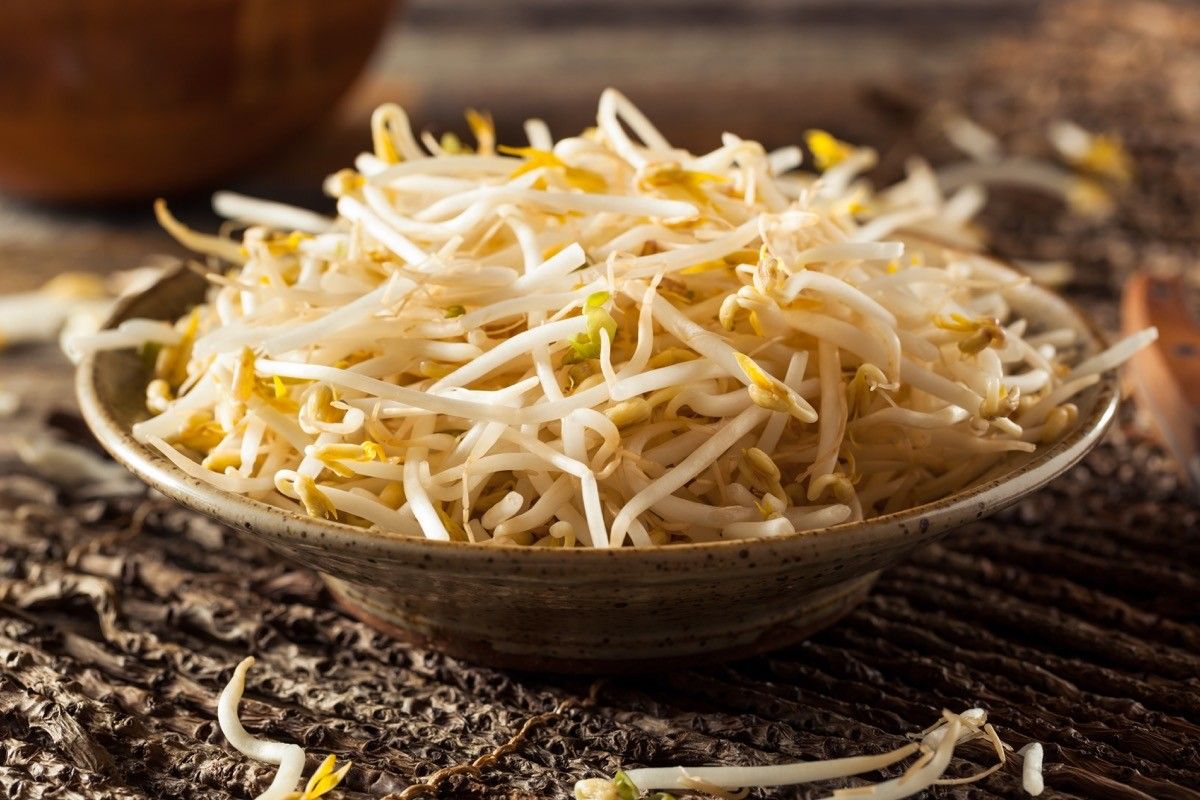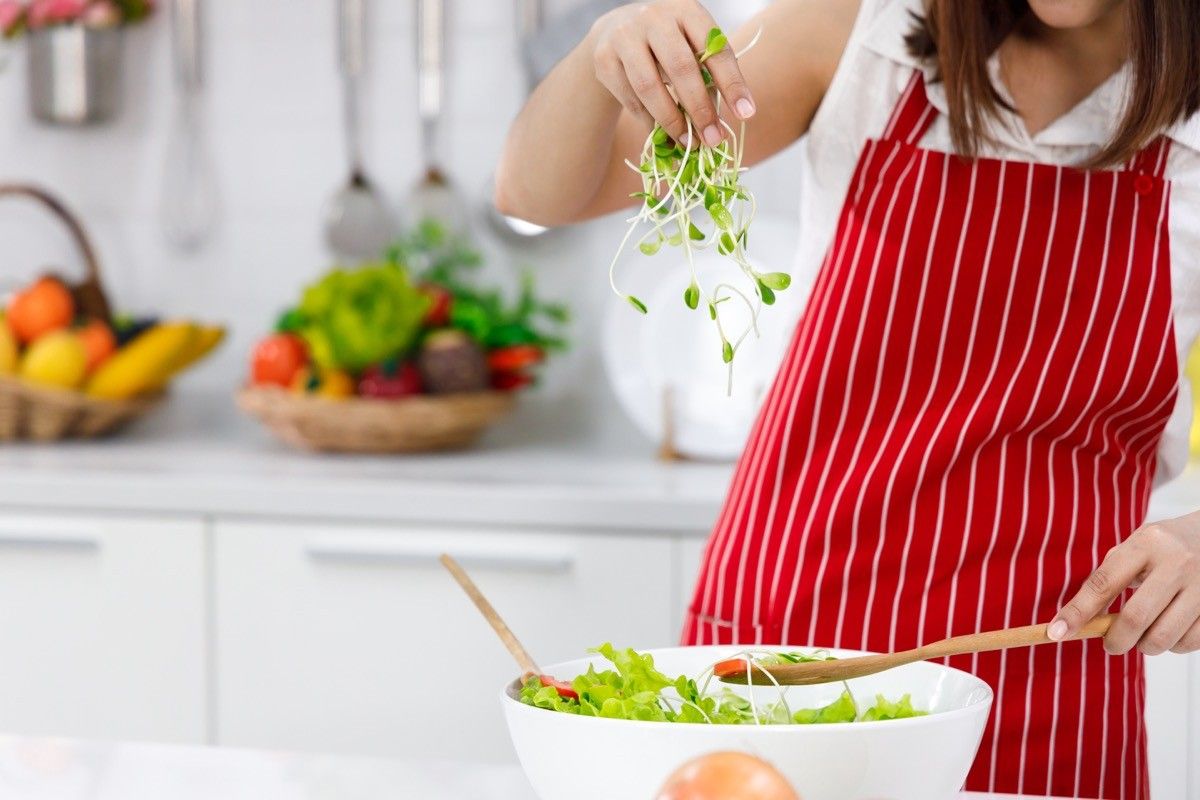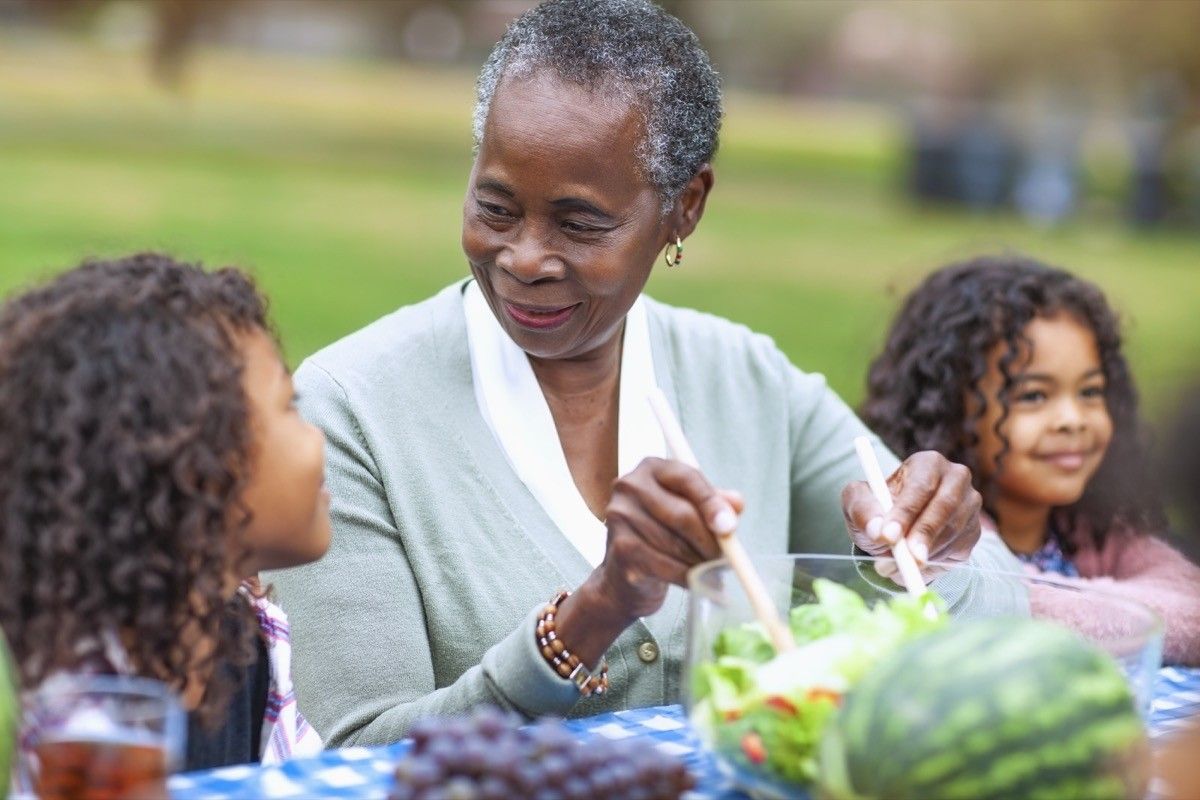There are so many delicious ways to prepare vegetables: You can steam them, you can sauté them, you can grill them, and you can—of course—skip the cooking process altogether. Health experts even recommend eating some vegetables raw, because they retain nutrients that could otherwise be cooked away. But that doesn't mean all veggies can forgo proper prep. In fact, there's one vegetable that you should never eat raw, because it poses real danger to your health, according to the Centers for Disease Control and Prevention (CDC). Read on to find out what healthy food you absolutely must cook before eating.
RELATED: Never Eat Leftovers That've Been in the Fridge This Long, Experts Warn.

If you're looking for some veggies to snack on raw, the CDC advises that you leave sprouts out of the mix. Sprouts are grown from "seeds and beans under warm and humid conditions," which are also ideal breeding conditions for bacteria, including Salmonella, Listeria, and E. coli., according to the U.S. Food and Drug Administration (FDA). These bacteria may be present on any produce, but the administration says the way sprouts are grown is especially risky.
"If just a few harmful bacteria are present in or on the seed, the bacteria can grow to high levels during sprouting, even if you are growing your own sprouts under sanitary conditions at home," the FDA warns.
RELATED: If You're Over 65, Never Eat These 4 Foods, CDC Warns.

As a result of the potential bacteria, eating sprouts without cooking them can cause you to develop food poisoning, according to the CDC. Even not cooking them enough could lead to this adverse reaction. "Cook sprouts thoroughly," the agency says. "Cooking kills harmful bacteria and reduces the risk of illness."
The FDA advises that you wash sprouts under running water before eating or cooking them, as this may reduce what bacteria is present. But the administration warns that washing sprouts will not eliminate bacteria altogether, so cooking is still necessary.

While anyone can get food poisoning, children younger than 5, adults 65 and older, pregnant women, and people with weakened immune systems are more likely to get sick, according to the CDC. The agency says they also have a higher risk of having a more severe illness because "their bodies' ability to fight germs and sickness is not as effective for a variety of reasons." According to the FDA, anyone who falls under these categories should avoid eating raw or lightly cooked sprouts of any kind, including onion, alfalfa, clover, radish, and mung bean.
"When eating out, you can ask that raw sprouts not be added to your food," the FDA advises. "If you purchase a sandwich or salad at a restaurant or delicatessen, check to make sure that raw sprouts have not been added."
RELATED: For more health advice delivered straight to your inbox, sign up for our daily newsletter.

Your food poisoning symptoms can vary depending on the kind of bacteria you consumed. But for most mild cases of food poisoning, you may experience common symptoms such as an upset stomach, stomach cramps, nausea, vomiting, diarrhea, and fever. These can take hours or days to occur, and the CDC recommends that you drink plenty of fluids to prevent dehydration from your sickness.
If you have signs of severe food poisoning, however, you should see a doctor immediately. According to the CDC, these symptoms includes bloody diarrhea or diarrhea that lasts more than three days, a high fever of over 102 degrees Fahrenheit, frequent vomiting that prevents you from keeping liquids down, little or no urination, a very dry mouth and throat, and a feeling of dizziness when standing up. Food poisoning can cause serious and long-term health consequences, such as as chronic arthritis, brain and nerve damage, and kidney failure, per the CDC.
RELATED: If You Notice This in Your Pantry, Grab a Mask and Gloves, CDC Warns.
You Should Never Eat Sprouts Raw, CDC Warns - Best Life
Read More

No comments:
Post a Comment